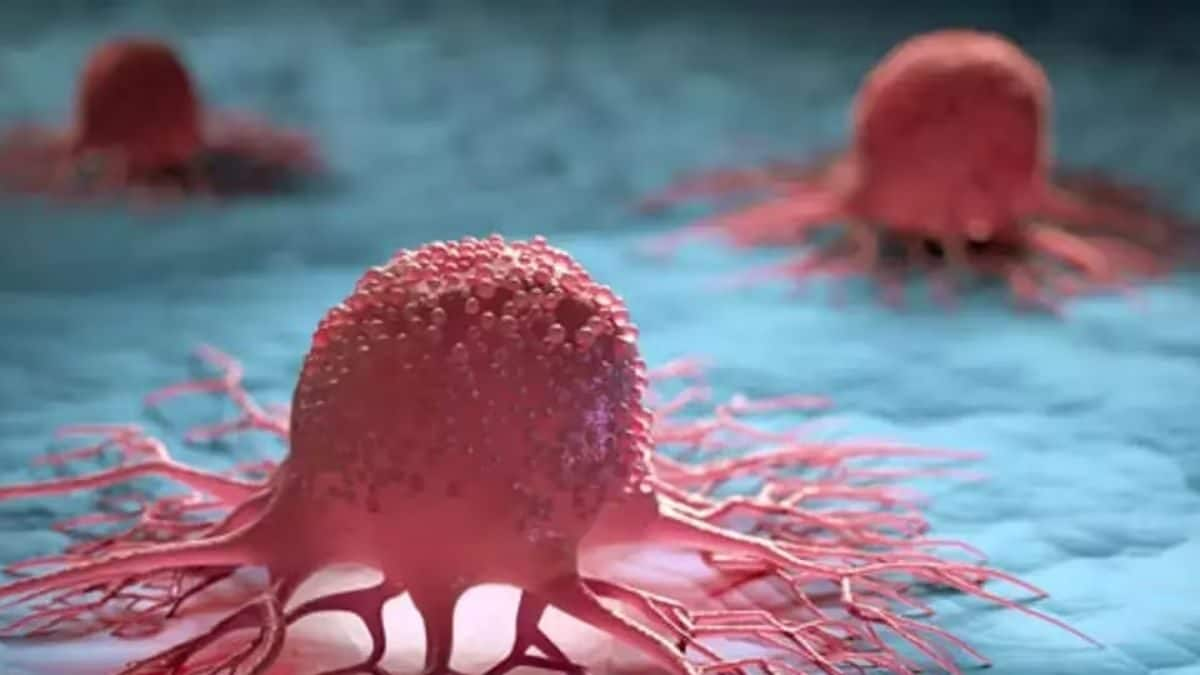Let’s Talk Sex | Spotting Ovarian Cancer Early: What Every Woman Should Know

Ovarian cancer has been called a silent killer for a reason, as early symptoms can be vague or easily mistaken for other less serious issues. (Image for representation: News18)
By the time most ovarian cancers are detected, the disease has usually spread beyond the ovaries. However, if you know what to watch out for, you have a chance of catching this cancer early
In this article, we will share some essential advice so that you can have the power to spot ovarian cancer sooner.
You know your body is better than anyone. So, when something feels off, you’ve got to listen up. Ovarian cancer has been called a silent killer for a reason – early symptoms can be vague or easily mistaken for other less serious issues. But this sneaky disease actually whispers early warnings if you’re paying attention.
Understanding Ovarian Cancer and its Symptoms
As the name suggests, ovarian cancer begins in the ovaries, which are part of the female reproductive system. The ovaries are responsible for producing eggs and the hormones estrogen and progesterone. Ovarian cancer can develop in different parts of the ovary and can manifest in various forms, but the majority of cases are epithelial ovarian cancers, which arise from the cells that cover the outer surface of the ovary.
By the time most ovarian cancers are detected, the disease has usually spread beyond the ovaries. However, if you know what to watch out for, you have a chance of catching this cancer early.
Here are a few common signs of spotting ovarian cancer:
- Abdominal bloating: Feeling bloated or full in your abdomen, especially after eating smaller meals, can be an early warning sign. It may be caused by fluid buildup from tumours.
- Loss of appetite or quickly feeling full: Ovarian tumours can press on your stomach and intestines, reducing your appetite and causing a sense of early satiety. Losing interest in food you usually enjoy is also a concern.
- Persistent indigestion or nausea: We all experience the occasional upset stomach, but ovarian cancer often causes indigestion, gas, and nausea that won’t go away.
- Vaginal discharge or abnormal bleeding, especially so if the bleeding occurs outside of your typical menstrual cycle or after you’ve gone through menopause.
- Pain in the pelvis or abdomen: Tenderness, pressure, or pain in the lower abdomen, pelvis, or lower back could signal ovarian cancer. The pain may come and go at first but become more frequent or intense over time.
- Urinating more often than usual.
Risk Factors and Genetic Testing
Family history is one of the biggest risk factors for ovarian cancer. If you have close relatives (mother, sister, grandmother) who have had ovarian cancer, your risk is higher. Talk to your doctor about genetic testing, which can check for mutations in genes like BRCA1 and BRCA2 that increase the risk. Only a few ovarian cancers are linked to these mutations.
Age is another key factor. Ovarian cancer is most common after menopause, usually in the 50s and 60s. So, if you’re in this age group, be vigilant about any symptoms and talk to your doctor right away if something doesn’t feel right. Obesity and never having been pregnant also slightly increase your risk.
Treatment Options for Ovarian Cancer
Once ovarian cancer has been diagnosed, the treatment options will depend on the stage of the cancer and other factors. The good news is, when detected early, ovarian cancer is highly treatable.
- Surgery: The most common treatment is surgery to remove the ovaries, fallopian tubes, and uterus. This is known as a total hysterectomy. The surgeon will also remove cancerous tumours and as much of the cancer as possible.
- Chemotherapy: Chemotherapy uses anti-cancer drugs to destroy cancer cells. It is often recommended after surgery to kill any remaining cancer cells. Chemotherapy may also sometimes be used before surgery to shrink large tumours, making them easier to remove.
- Radiation therapy: Radiation therapy uses high-energy beams to kill cancer cells. It is not commonly used for ovarian cancer but may be recommended in some situations.
- Hormone therapy: Hormone therapy blocks the production or action of estrogen and other reproductive hormones that can fuel the growth of some types of cancers. This approach is most often used for recurrent ovarian cancer.
The treatment options for ovarian cancer continue to improve over time. Ongoing research is leading to the development of new targeted therapies, immunotherapy drugs and improved treatment approaches.
Lifestyle Changes to Lower Your Risk of Ovarian Cancer
Making a few changes to your daily habits can help lower your odds of developing ovarian cancer.
- Losing excess weight: Having a body mass index over 30 puts you at higher risk. Shedding pounds through diet and exercise is one of the most effective ways to cut your risk.
- Eat a balanced diet: A balanced diet with lots of fruits and vegetables, whole grains, and lean protein can help you achieve and maintain a healthy weight.
- Limit red meat and saturated fats: Choose plant-based protein sources like beans, nuts, and seeds instead of red meat. Switch to low-fat or fat-free dairy options. And bake, broil or grill foods rather than frying them.
- Get active: Aim for at least 30 minutes of moderate exercise most days of the week. Walking, jogging, yoga, and strength training are all great options. Exercise reduces inflammation in the body and helps regulate hormone levels, both of which may contribute to ovarian cancer development.
- Consider birth control: Oral contraceptives, especially when taken over long periods, can cut ovarian cancer risk by up to 50 per cent. The protection seems to last for many years after you stop taking the pills. If you’re done having children or don’t plan to get pregnant, discuss your birth control options with your doctor.
The bottom line is that ovarian cancer is a serious disease, but catching it early gives you a much better chance of surviving it. Pay attention to your body, track your symptoms, and see your doctor if you notice anything unusual or concerning. Don’t ignore bloating, abdominal pain, trouble eating, or frequent urination. Get regular checkups and testing. Know your family history. With today’s medical treatments and your own positive attitude, you can beat this.

Atul Tiwari is a seasoned journalist at Mumbai Times, specializing in city news, culture, and human-interest stories. With a knack for uncovering compelling narratives, Atul brings Mumbai’s vibrant spirit to life through his writing.






